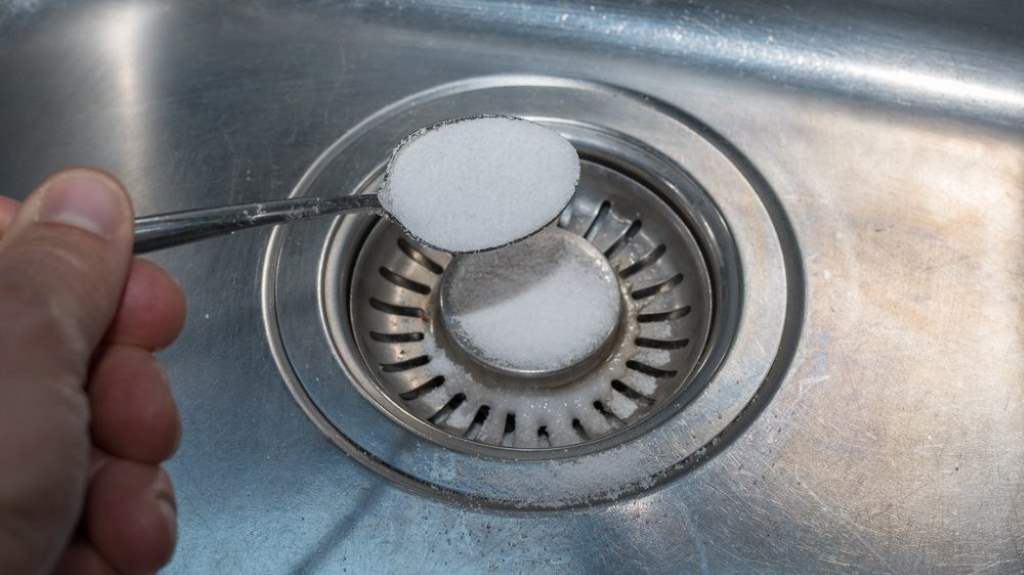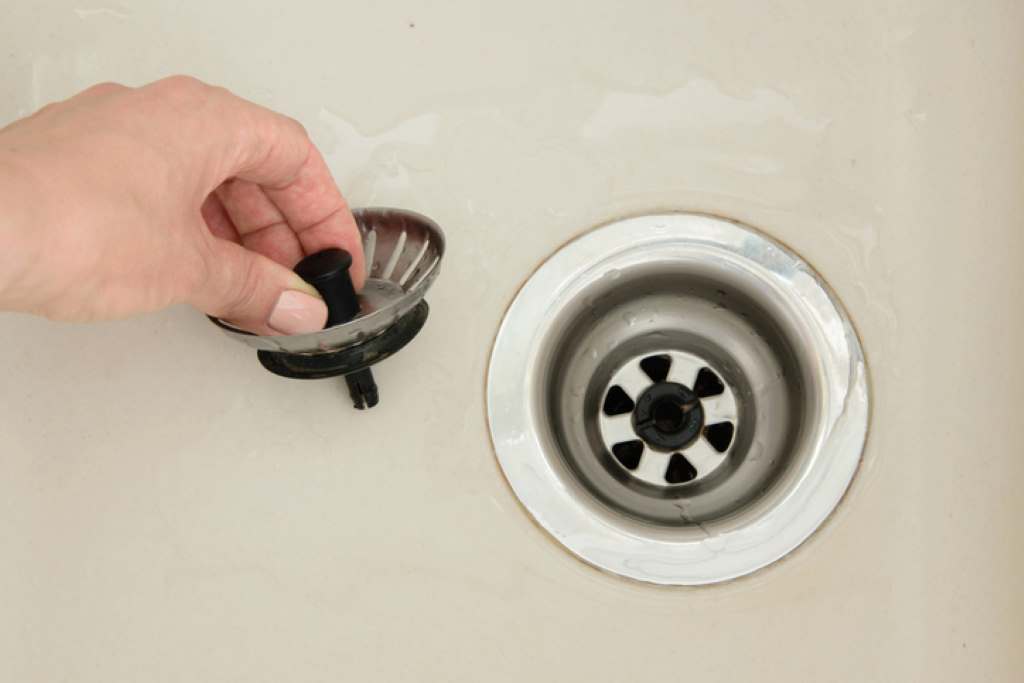
05 May Salt Down the Drain: Myth, Maintenance, or Mistake?
If you’ve scoured the internet for DIY drain tips, you’ve probably come across the advice to pour salt down your kitchen drain. But does it really work? The answer is a bit more nuanced than a simple yes or no. Let’s explore the reasons, the limitations, and the alternatives to using salt for your drains.
The Theory Behind the Salt Myth
The idea behind pouring salt down your kitchen drain is two-fold:
- Scouring Action: Salt’s coarse, granular texture might lead you to think it will scrape away buildup, acting like sandpaper for your pipes.
- Grease Breakdown: The thought is that salt may chemically react with grease and fats, breaking them down into smaller particles that are easier to flush away.

Fact-Checking the Claims
Unfortunately, the reality of pouring salt down your drain doesn’t quite match the theory:
- Limited Scouring: While salt is abrasive, the amount you would reasonably pour down your drain won’t have a significant scouring effect. Most buildup in pipes is slimy and requires more than a gentle scrape.
- Minimal Grease Breakdown: Salt does help emulsify fats but works best when combined with hot water and agitation. A small amount down your drain is unlikely to make a huge difference.
- Potential Corrosion: In older homes with metal pipes, excessive salt use can actually contribute to corrosion and leaks over time.
So, Does Salt Have ANY Place in Drain Maintenance?
Yes, but with caveats:
- Odor-Fighter: A salt and baking soda mixture poured down the drain, followed by hot water, can help neutralize odors from lingering food particles. However, it won’t fix the root cause of a funky smell.
- Minor Grease Prevention: Regularly rinsing your greasy dishes with hot water and a small amount of salt before washing can help prevent grease from solidifying in your pipes in the first place.
When it’s NOT a Good Idea
- Major Clogs: If you have a serious clog, don’t waste time with salt. It’s ineffective against hair, food scraps, and other common causes of substantial blockages.
- Septic Systems: Excessive salt can disrupt the delicate bacterial balance in your septic system.
Better Than Salt: Alternatives for Clean & Clear Drains
So, if salt isn’t the drain miracle you hoped for, what should you do?
- Prevention is Key:
- Strainer: Use a sink strainer to catch food scraps.
- Grease Jar: Dispose of cooking grease responsibly in a jar, not down the drain.
- Hot Water Flushes: Regularly flush drains with hot water, especially after greasy meals.
- Natural Solutions (for minor issues):
- Baking Soda & Vinegar: This fizzy combo creates agitation and can help with very small buildup or odors.
- Enzyme Cleaners: These use bacteria to break down organic matter and are safe for your pipes.
- Mechanical Methods:
- Plunger: For simple clogs near the drain opening.
- Drain Snake: Can reach farther into the pipe to dislodge blockages.
- Call a Plumber: When DIY methods fail, or you suspect a more serious issue, it’s time for a professional.
Additional Tips for Healthy Drains
- Avoid Chemical Cleaners: Harsh chemicals can damage pipes and harm the environment.
- Be Water Wise: Only run your garbage disposal when necessary and with plenty of cold water.
- Inspect Regularly: Peek under your sink periodically to check for signs of leaks or slow drainage.
The Verdict: Salt’s Limitations
While salt has its place in the kitchen, it’s not a magical solution for drain problems. It can offer mild odor control and be a part of preventive maintenance, but it’s no substitute for good plumbing habits and addressing real clogs. Remember, an ounce of prevention is worth a pound of salt—or a costly plumbing repair!



Sorry, the comment form is closed at this time.